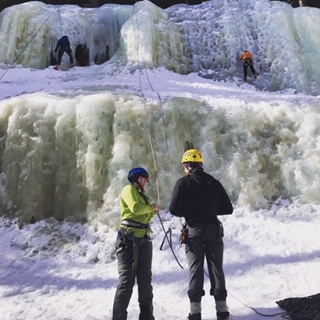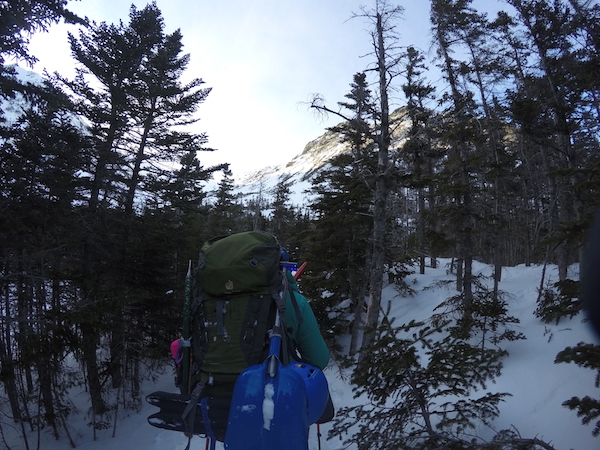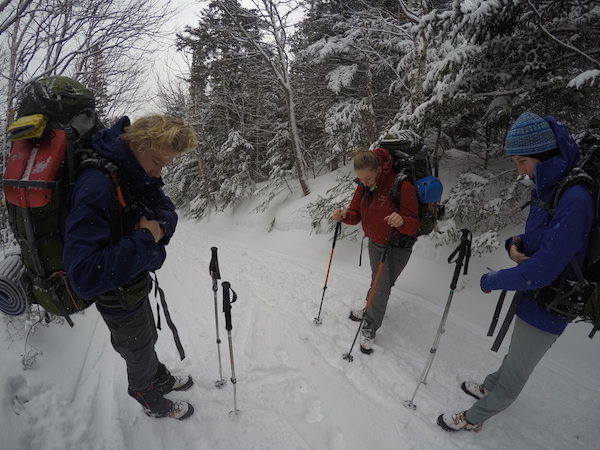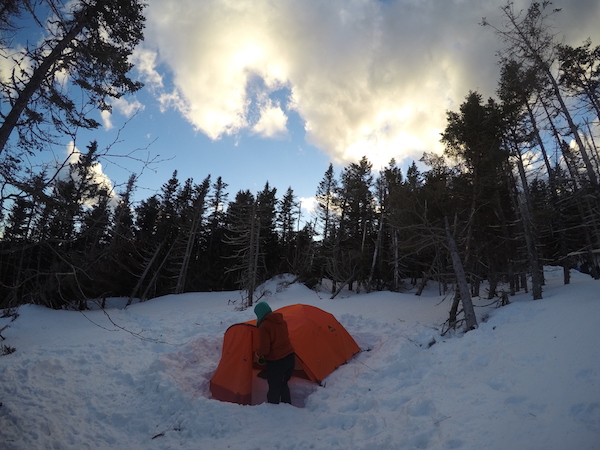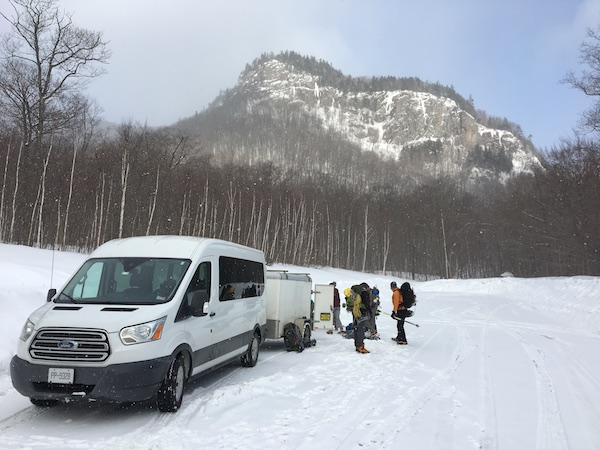Learning to Lead at New Heights
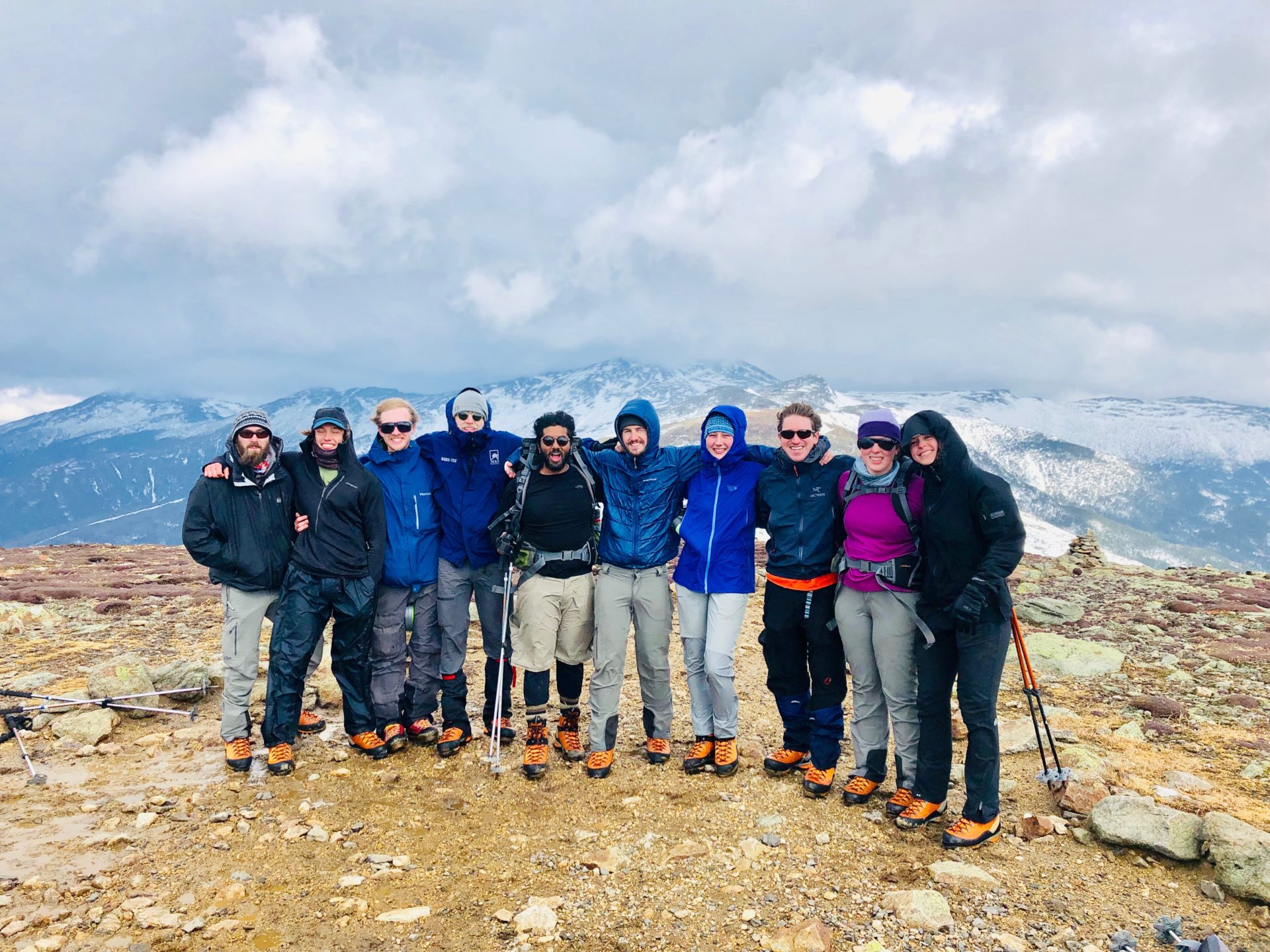
Recently, Scott Schneider, a senior lecturer of Outdoor Leadership in the Health and Exercise Studies department sat down to reflect on this year’s HESO 283 Mountaineering class’ spring break trip to the White Mountains in New Hampshire.
Part of the northern Appalachian Mountains, the White Mountains cover nearly a quarter of the state of New Hampshire and are considered to be some of the most rugged mountain terrains in New England. Schneider notes “this is by far one of the most challenging trips we offer.” Recent Crop and Soil Science alumna and Outdoor Leadership minor, Katherine Miller, agrees it was one of the most challenging experiences of her academic career, but also one of the best.
Students spend the spring semester leading up to the trip participating in class activities and learning techniques which they utilized while exploring the mountains. “There is a lot of preparation that goes into the trip,” explained Schneider.
During the class meetings, students practice setting up camping equipment like tents and stoves, rock climbing, and work to familiarize themselves with all gear necessary to protect them from the harsh cold and high winds. They also do a great deal of physical training to build up the strength and endurance necessary for such a strenuous endeavor. Miller notes the preparation for the trip was one of the most challenging aspects for her. “You can always do more,” she explained, “we did a lot of training, but I definitely could have done a few more hours on the StairMaster to prepare.” Alongside the physical preparation, Schneider looks to mentally prepare his students for the expedition by assigning readings and asking them to reflect on their experiences through journaling. An aspect which Miller found personally rewarding, “even with the group, people move at their own pace, so you have a lot of time to think and reflect during the hike.” She further explained the solitude provided her time to think about her future as well as her place in nature and the world.
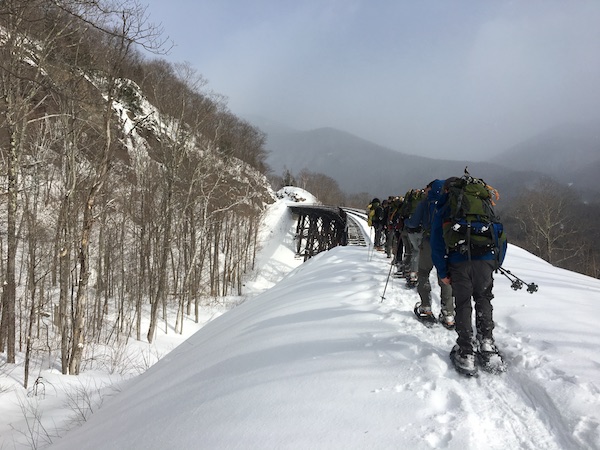
On March 15th, Schneider and fellow HES senior lecturer, Terry Dash, along with the ten mountaineering students set out for the ten-day intense expedition. After about a fourteen hour drive, the team arrived at the White Mountains where they carried their fifty to sixty-pound packs to the base of Mt. Washington’s Tuckerman’s Ravine to begin their journey. Here students got first-hand experience learning to thermo-regulate while traveling across avalanche terrain. They also learn to use crampons, ice axes, and other tools to assist with snow climbing. The next three days of the trip were spent climbing some of the best ice floes on the east coast. The final stage of the trip culminates in a three-day climb to the top of the of Mt. Eisenhower, one of the major peaks of the Presidential Range, which affords students the opportunity to utilize all the skills they have learned throughout the class, and a breathtaking view of the New Hampshire mountains all at an elevation of 4,780 feet. Schneider proudly notes, “with a lot of effort, hardship, and positive attitudes, all of the students made it to the top of Mt. Eisenhower, even with forty to fifty mile per hour winds!”
“You can always do more,” she explained, “we did a lot of training, but I definitely could have done a few more hours on the StairMaster to prepare.”
Katherine Miller
Reflecting on what she learned from the trip, Miller noted she appreciated the experience not only for the personal challenge it provided but for the opportunity to bond with her fellow classmates, “it’s an experience we all share now.” Miller also noted the trip provided her with insight she plans to take with her as she pursues a graduate degree in Recreation and Sports Management at the University of Arkansas. She appreciated “getting to see what went into [Schneider’s and Dash’s] decision-making process on some of the tough calls,” like deciding whether or not the team should attempt to summit the peak during intense winds.
HESO 283 Mountaineering is open to all students and can be used to fulfill the Health and Exercise Studies general education requirement. It can also count as an elective course for the Outdoor Leadership minor. For students interested in pursuing the Outdoor Leadership minor, or those who may be curious about the mountaineering course, Scheinder recommends taking HESO 257 Backpacking and HESO 258 Basic Rock Climbing. “People often say Backpacking and Basic Rock Climbing are sort of like the gateway to the outdoors,” explained Schneider. Both HESO 257 and 258 are pre-requisites to HESO 283. For more information on courses and minors from Health and Exercise Studies check out their website.
